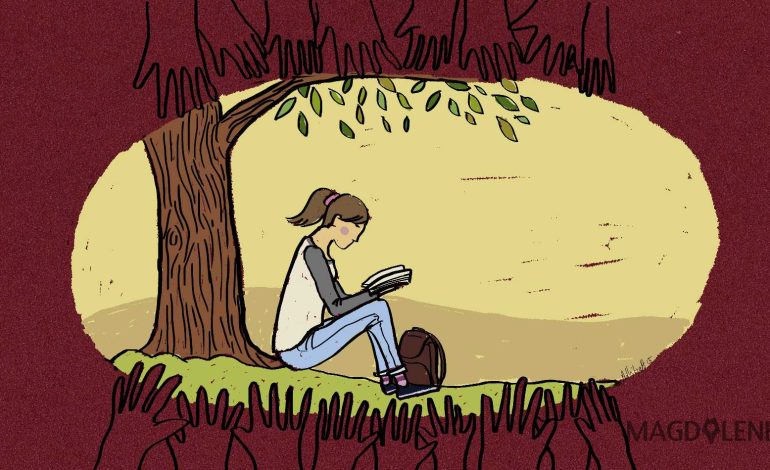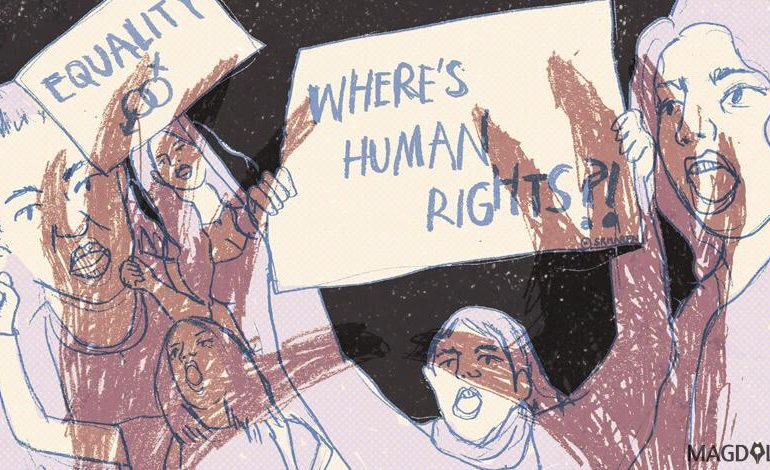Sexual Assaults Survivors Stay Silent Thanks to Little Protection from Schools

A recent survey on sexual violence in university shows that a tenth of students have experienced sexual violence on campus, but only half of them reported their assaults. Conducted by the Student Executive Board of the Faculty of Law at University of Indonesia, the survey involved some 180 respondents. Only 11 of the 20 people who said they had experienced sexual violence reported their assault, whether to the police, or their families and friends, the survey found.
“Sexual violence in the educational institutions in Indonesia is like an iceberg,” said Danu Pratama Aulia, a representative of the Faculty of Law’s Student Executive Board during a conference held on Nov. 25 by the legal aid institution for women LBH APIK on the sexual violence in public education.
“What we see in the news and what is trending on social media are just cases that caught public’s attention. In reality there are many more,” he added.
Danu listed the many reasons victims do not report their situation, starting from fear of social and physical punishment, to imprisonment.
Educational institutions require social and hierarchic relations in the learning process. The relation is one of the reasons behind many sexual violence cases such as Agni’s and Baiq Nuril’s cases and why victims are reluctant to report their cases for fear of affecting their jobs, statuses or grades.
“Because the relation is inevitable, there should be rules and code of ethics regarding this, and campuses should provide an anti-sexual violence environment,” added Danu.
Stigma and victim blaming is another major factor that contributes to the victims’ silence. Victims are often attacked with hurtful judgment when their assault became known to public. In some cases, their sexual assault is followed by a counter attack to criminalize the victims.
“Many sexual violence victims would rather not say anything than be talked about negatively,” said Danu.
In some cases, victims do not report their cases to protect their perpetrators. Danu said that 85 percent of sexual violence cases on campus are done by people closest to the victims such as their teachers or friends.
“Victims are more likely to not say anything because they are confused; they are close to that person. They do not want to hurt them, even though they have been hurt themselves,” he said.
The survey also found that 80 percent of the respondents claim to not know what to do or where to go in case of sexual violence. This is why it is important to have a crisis center for sexual violence on campus. Many prominent universities in the United States, for example, have their own 24-hour crisis centers for sexual violence that not only receive reports from and provide refuge to the victims of sexual violence, but also hold anti-sexual violence campaigns and social events, he said.
Instead of providing a safe refuge for victims of sexual violence, universities in Indonesia deny them justice to protect the school’s “good name”.
Venny Siregar, Legal Coordinator in LBH Apik, said that in many of the cases schools and universities force the victims to stay silent about their assaults.
“In 2017 a student who was sexually assaulted in school was forced by school officials to swear with her hand on top of the Quran to not talk to anyone about the attack. When her parents found out and demanded justice, the school proposed a peaceful settlement that did not involve the law. This is what happened to a lot of sexual violence cases in schools and universities,” she said.
“Some schools and universities even expelled victims of sexual violence for allegedly defaming the institutions’ names. Instead of protecting or helping the victims, they punish them,” she added.
“Parents invest in universities and schools so that their children can make this world a better place in the future. Sexual violence can create critical negative impacts to someone’s life, if this is not solved and if this keeps happening to our children, how can we create a great and better future?” added Venny.
Police often take active part in victim blaming and stigmatizing survivors of sexual violence, said Citra Referandum a lawyer at legal aid instution LBH Jakarta. Frequently when reporting a sexual violence case, police will decline it due to sufficient evidence or other unclear reasons.
“We have to understand most victims could not mentally report right after the incident. They need time to psychologically recover,” said Citra.
”Besides, insufficient evidence should not be the reason for the police to decline reports. That is the task for the investigators to find out.
When a case is accepted, it would often take a year for the police to investigate and conclude, she added.
According to Noval Auliady, founder of Sexuality and Peace (SPACE) Jakarta State University, police are generally more supportive of the perpetrators rather than the victim.
“Police do not accept the victim’s report, citing the evidence was not strong enough. In contrast, they easily accept the perpetrator’s report on defamation by the victims and the victim’s supporters. They easily accept counter attacks,” he said.
Meanwhile, the much awaited Bill on the Elimination of Sexual Violence has been stuck in the House of Representatives since discussion began this year. Venny called on the government and the legislatures to stop giving impunity to perpetrators of sexual violence, to pass the bill and provide justice for those who seek it. She also called on others to continue to help push the campaign.
“The president said in 2016 that sexual violence is a crisis but we are still waiting for strict measures to be enforced today,” she said.
Find out how this novel is a reminder of the 1965 injustice.






















